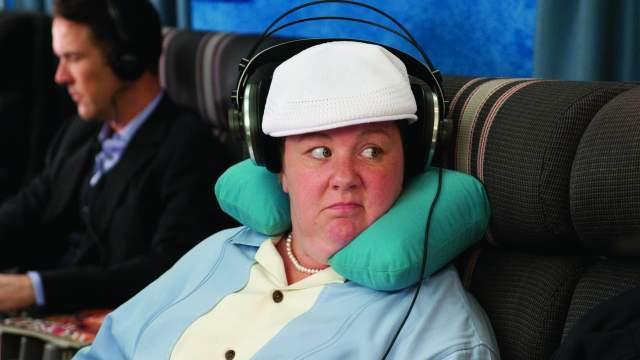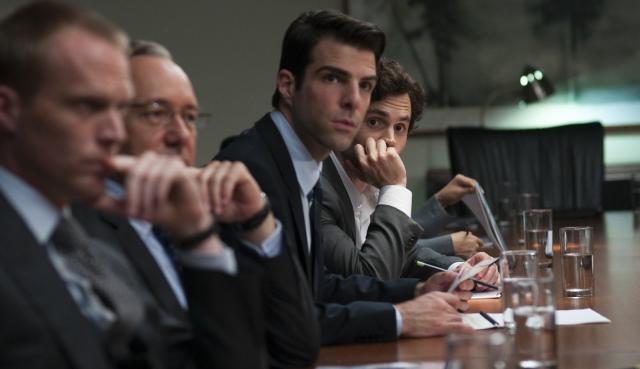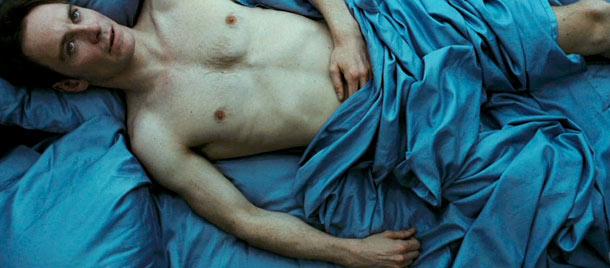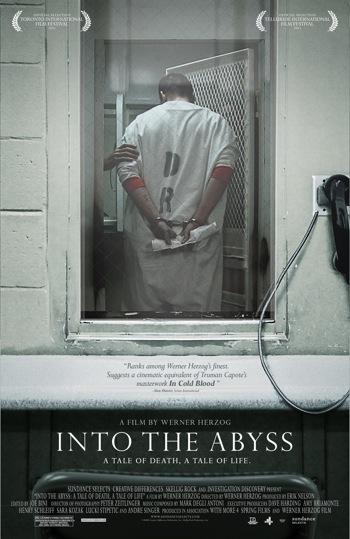
We've had a full day to indulge in Monsieur Lazhar-related elation (one last time, all together now: hooray!). It's now time to take up one of my favourite annual pastimes: griping and grumbling about the nominations. Because let's face it: Oscar voting is a very inaccurate science, and the nominations (and wins) are perfect targets for disgruntled/impassioned film buffs like me. Let me put it this way: if a critical mass of film reviewers was quarantined and faced with the task of delivering Oscar nominees, their picks wouldn't look quite like Tuesday morning's announcement…at all. But that's beside the point.
Now that the nominations are out, we can get to the fun part of debating the merits of this supporting actor, that adapted screenplay or that finalist in sound mixing (okay, maybe not.) I won't comment on the questionable choices (9/11 stinker Extremely Loud & Incredibly Close? Old-fashioned Spielberg sap fest War Horse?) in much detail. Because although the Academy suffers from acute tunnel vision in many ways, it did hand out a few surprisingly great nods.


Beginners // Bridesmaids
GOOD NEWS
The supporting actor nomination for Montreal-raised 82-year-old Christopher Plummer, who gave an incredibly heartrending turn in Beginners as a septuagenarian leading an emancipated end-of-life as an out gay man, is great news. Ditto to Best Supporting Actress nominee Melissa McCarthy for her scene stealing, side-splitting, and (at times) scatological turn in The Hangover's funnier female counterpart, Bridesmaids. Wim Wenders' stunning 3-D documentary Pina, an imaginative tribute to the late German modern-dance choreographer Pina Bausch, quite deservedly secured a nomination in the Best Documentary Feature category. And last, but certainly not least, Best Original Screenplay nominee Margin Call is a sobering and absolutely thrilling meditation on Wall Street's financial nosedive. It's incredibly taut and smart, it exposes a whitecollar greed that knows no bounds, and the performances (Kevin Spacey, Jeremy Irons, Zachary Quinto) are brilliant.


Pina // Margin Call
Now that we've recognized the smart moves, let's shift to the hate mail. There could be heaping baskets of ‘em, but we've limited ourselves to the four most egregious omissions. Without any further ado: Shame on you, Academy!
SHAME
Fox Searchlight knew from the get-go they'd be fighting a losing battle in reaching reportedly conservative Academy members to like this challenging, yet incredibly powerful film about sex addiction. Kudos to them for not making any cuts to the American theatrical version and embracing their dreaded NC-17 rating. But no matter how much praise all the critics and journalists might have lathered/rinsed/repeated at the film and its commanding lead, Michael Fassbender, we saw the limitations to such a campaign this morning when British filmmaker Steve McQueen's film was completely, brutally left out in the cold. Fassbender and McQueen will both undoubtedly (hopefully) get their dues in future years, as the Academy gradually sheds its old guard ways.

Our interview with Michael Fassbender here
MARTHA MARCY MAY MARLENE
Sure, everyone considered it to be a long shot, especially given that the film's buzz had peaked some time ago (it premiereed at the 2011 Sundance Film Festival.) But those who'd seen this disturbing psychological chiller were rooting for it. The inner turmoil of Martha, a damaged, frightened cult survivor, comes alive thanks to brilliant editing (a haunting narrative structure that reveals bits of Martha's scarring sojourn as she attempts to get past the trauma) and a fearless Elizabeth Olsen in as impactful a breakout role as one could ever hope for. It's the type of indie standout Academy voters are typically not interested in, so not a total shocker, but still disappointingly predictable.

Our interview with Elizabeth Olsen here
DRIVE
The film sharply divided critics and filmgoers into two camps: those who saw the brutally violent thriller about a Hollywood stunt driver with a penchant for criminal kicks as a brilliant, slick neo-noir, and those who saw it as a hyped-up case of style over substance. Needless to say, my allegiance lies with the former camp. Of course, the film is the epitome of cool – a sexy score full of wailing synths, a moody, melancholy charmer with mad skills behind the wheel, a shocking glimpse at ruthless criminals and a visual style that's soaked in pinkish, amorous hues. But getting the Academy to recognize that aesthetic flair, to smile at those mobster-as-monster characterizations, to get all shook up over a bomber jacket with scorpion insignia? In your dreams. So forget about Albert Brooks' devilish turn, Nicolas Winding Refn's dynamo direction and Ryan Gosling's restrained might. How does a Best Sound Editing nod sound? Good, because that's all they got.

INTO THE ABYSS
Every year, the Oscars' documentary feature category is one of the most hotly contested, and the shortlist of 15 finalists released by the Academy every November does nothing to diffuse the tension. On any given year, there'll be a number of clear frontrunners that get surprisingly snubbed. Those who fit the bill this year are Steve James' The Interrupters, Asif Kapadia's Senna, and Werner Herzog's Cave of Forgotten Dreams. But I'd argue the most glaring omission of all is another Herzog entry (there's no denying the man is prolific), Into the Abyss.
As with all Herzogian matters, this exploration of the death penalty – and of the various individuals whose lives are impacted by Texan laws on capital punishment – is a grim, eccentric and darkly compelling affair. While we're never in the dark as to where Herzog stands on the matter (he states in the film that “human beings should not be executed”), this ain't a heavy-handed doc firing away statistics and wrongfully accused sob stories to win over death row advocates. Herzog listens intently to what victims, criminals (one of whom is mere days away from his execution), “Death House” prison guards and townsfolk have to say. The harrowing experiences they share bring about many more unsettling questions, which neither Herzog nor his film have answers for. As to why the Academy snubbed the oft-controversial German filmmaker? Well, other than his 2009 Oscar nod for Encounters at the End of the World, their voters have always kept a safe distance from his dangerous brand of wisdom…
